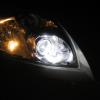Importing Or Buy Local
Announcements
-
Similar Content
-
Latest Posts
-
It says 300ZX, does that make it an Aus delivered car? Funny how back in the day I just couldn't care less about Z32's and these days I am just in love with them. Back when Nissan was into pushing the envelope. 🤣
-
Hi guys, just after some guidance with an R34 sunroof that has stopped working correctly. It still opens and closes perfectly fine, but it no longer tilts/vents up or down. As a result, the rear of the glass now sags a bit as it drops down slightly in order to retract into the roof, but now it can't pop upwards into a flush position. I’ve probed the pins on the back of the switch connector with a multimeter and it seems like both switches (for open/close and tilt/vent) still work correctly. Any ideas on what it could be, or where I should even start in terms of diagnosing? I'm sure someone's had this issue before but I haven't been able to find anything online relating to this specific issue, most of the issues are with the seals leaking or the motor failing entirely. Thanks in advance!
-
By joshuaho96 · Posted
Do you have some data like fuel pressure? It's really hard to say if you're still fighting a fuel system issue at this point. Could be something weird like the FPCM dipping out. -
By Murray_Calavera · Posted
Yeah in that case, pulling the dent out. Event a very slight dent can create a lot of work filler-wise and there is a strong chance the panel won't be the factory shape when you are done (as the dent will result in a new high point created somewhere, then everything is brought up to that new high point... but the panel shouldn't be that high if that makes sense). So you've filled and primed the panel and it is flat, why would you go back and remove the primer and add more filler? -
Something else I have been faffing with while the car was off the road is making the AC work. Assuming the car isn't at a thermal limit the idea of having AC while waiting in line to go on track sounds delightful. I have actually been lugging around the weight of the entire system since 2018 when the RB25NEO went in without it working at all. The main reason was in the first few events before I got around to re-gassing it the rubber hose that runs under the manifold had the factory heat wrap/sleeve fail resulting in this: ~2 years ago I purchased a complete used R32 AC line set but when I finally went to install it the line i needed was different where the expansion section is I found a local place that was able to replace the rubber section and re-crimp. They also added some modern heat sleeve to the hose Tight fit but fingers crossed this is the last physical piece of the puzzle needed
-






Recommended Posts
Create an account or sign in to comment
You need to be a member in order to leave a comment
Create an account
Sign up for a new account in our community. It's easy!
Register a new accountSign in
Already have an account? Sign in here.
Sign In Now